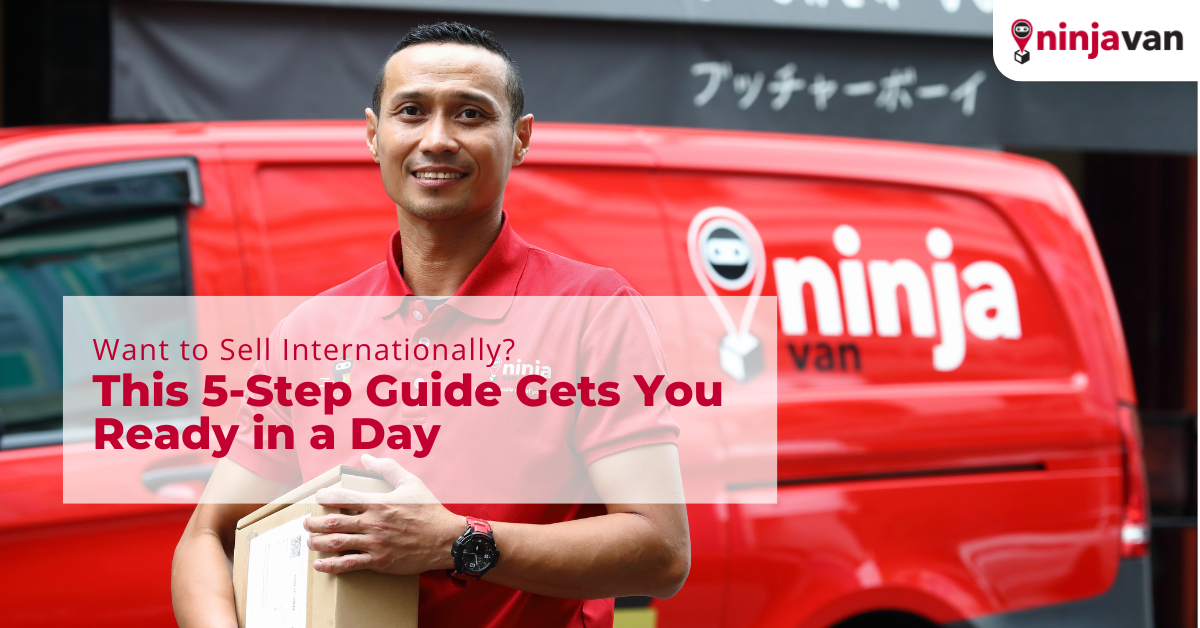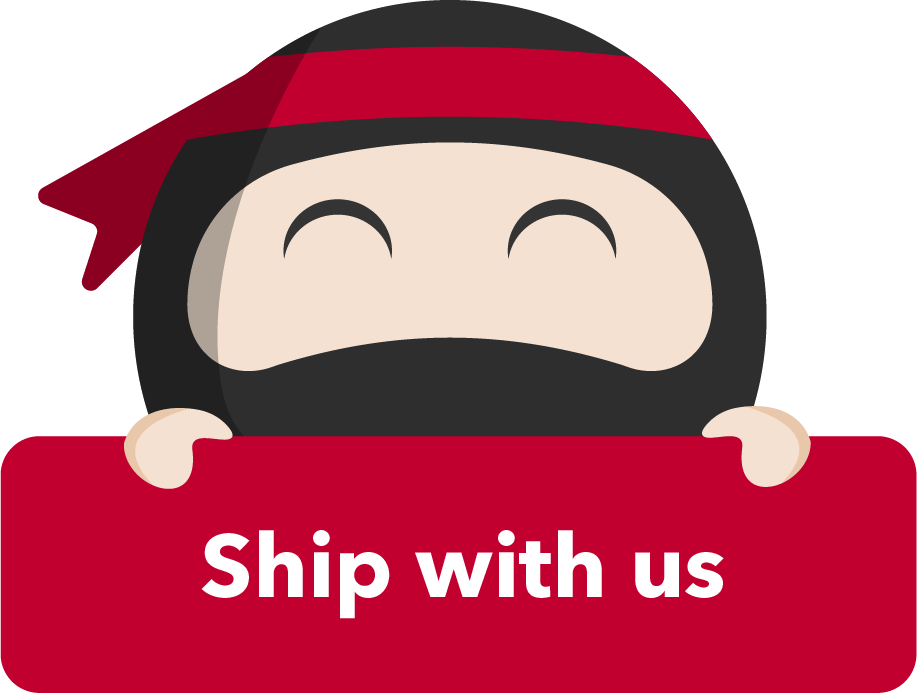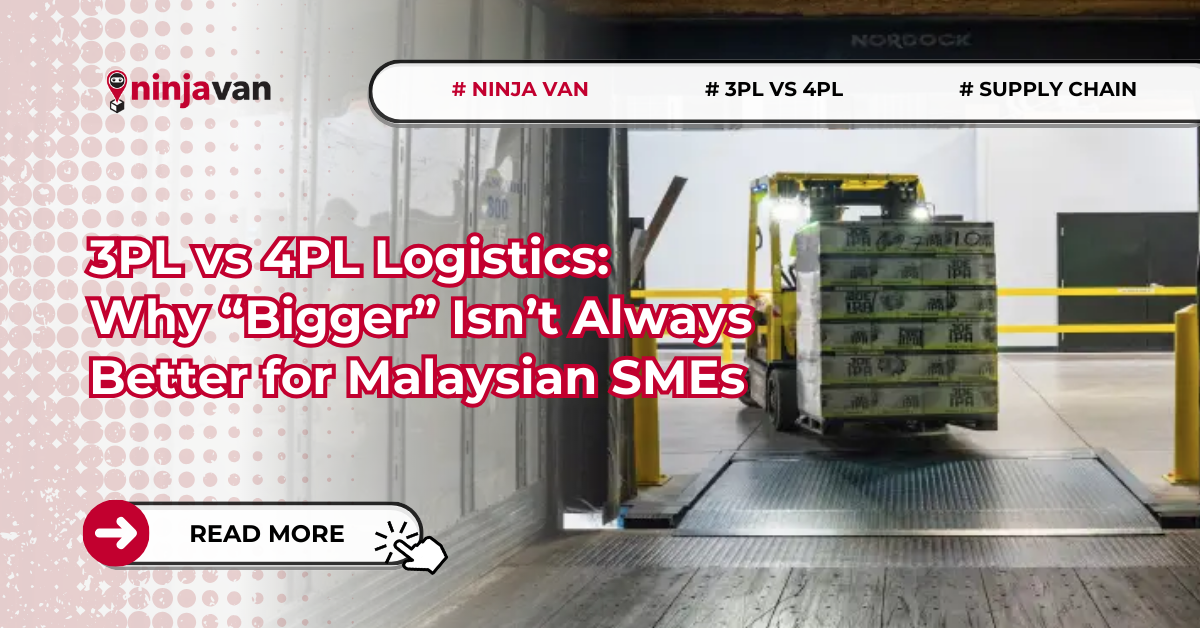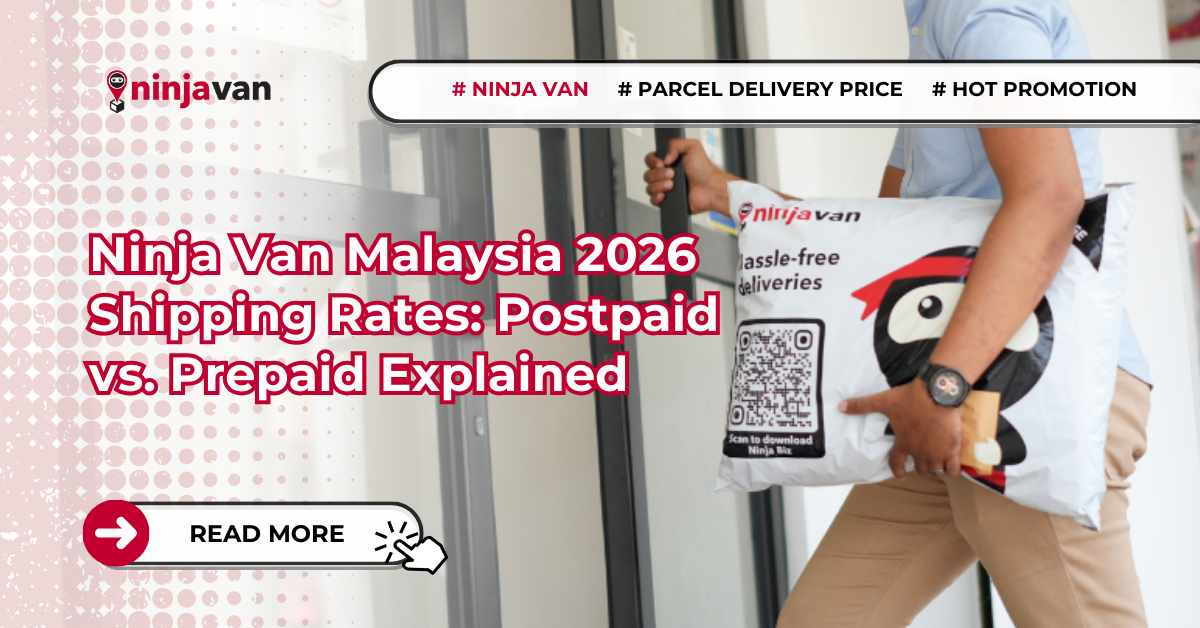You’ve built a strong local customer base. Now it’s time to think bigger.
The good news? Expanding beyond Malaysia isn’t as complex—or costly—as it sounds. Whether you’re shipping to Singapore, the Philippines, or anywhere in Southeast Asia, this guide shows you how to get started.
Follow these five steps, and you can be ready to accept international orders by tomorrow.
Step #1: Find Out If the World Wants What You’re Selling
Before setting up shipping or international ads, ask yourself:
- Is there demand overseas?
Check your website and social media insights. If you’re getting visits and inquiries from outside Malaysia, that’s a great sign. - Is my product export-friendly?
According to our e-Guide, Fashion & Accessories (68%), Food & Beverage (47%), and Health & Beauty (46%) are the top categories regionally. Keep in mind that food, liquids, or electronics can be trickier to ship due to regulations. - Can you support international customers?
Even simple, timely emails or direct message replies can build trust across time zones.
Quick tip: Not sure? Run a small RM50 geo-targeted ad on Instagram or Facebook to test interest.
Step #2: Pick a Supply Chain Model That Matches Your Stage
How you ship affects speed, cost, and effort. Choose a model that fits your business now.
- Direct-to-Customer: Ship from Malaysia only when an order comes in. Low risk, but slower.
- Bulk Shipping + Local Fulfillment: Send stock to a warehouse in the destination country for faster local delivery.
- Source + Produce Locally: Set up in the destination country. Best for big brands with consistent demand.
Quick tip: Start with Direct-to-Customer. It’s simple, low-cost, and lets you learn as you go.
Step #3: Optimize Social Media for Overseas Reach
Social media is your fastest, most cost-effective way to break into new markets—if you use the right platforms and content. Focus on these three key strategies:
1. Create localized content
Tailor your posts to fit the culture and preferences of your target audience. For example: “How Singaporeans style our new Raya collection” resonates more than a generic product post.
Take two homegrown Malaysian brands—dododots and hygr—as examples. Both are expanding into the Singapore market and have launched dedicated TikTok accounts to share localized content tailored to Singaporean audiences.
2. Use geo-targeted ads
Run geo-targeted ads on platforms your audience actually uses. In Singapore, that’s Facebook (74.7%), Instagram (60.3%), and TikTok (52.5%). In the Philippines, Facebook leads at 94.6%, followed by TikTok (80%) and Instagram (72.5%), according to 2024 Google study.
3. Add a local touch
Use regional slang, culturally relevant visuals, or trending audio. Partner with micro-influencers in your target country to boost relatability and trust.
Quick Win: Repurpose your top local post for a new market, then test it on the leading platforms—Facebook for both Singapore and the Philippines.
Step #4: Localize Your Online Store for International Buyers
If you want overseas customers to buy, your store needs to feel familiar to them.
- Enable international checkout. Show local currencies like SGD, PHP, or IDR so buyers know what they’re paying
- Offer familiar payment methods. Think PayNow, ShopeePay, GCash, or even COD.
- Translate product descriptions. Use DeepL or ChatGPT to make your store feel local.
- Use free shipping smartly. It’s a powerful nudge for international buyers.
- Add homepage banners to highlight that you ship internationally or any ongoing promo for your target countries.
Quick tip: Platforms like EasyStore, Shopify and Shopline offer plug-ins for currency, payments, and translation—no coding needed.
Step #5: Get Clear on Shipping Logistics (Without Overthinking It)
Logistics is often where sellers hesitate—but it doesn’t have to be complicated.
A reliable international shipping provider can take care of:
- First-mile pickup from your location
- Customs clearance
- Last-mile delivery abroad
- End-to-end international shipping tracking
Before you commit, make sure to have a quick conversation with your provider to clarify:
- What products are restricted in your target countries?
- How do you pack according to shipping standards?
- How long does international shipping take?
- What are the international shipping rates?
Quick tip: Compare a few logistics providers—not just to find the cheapest international shipping from Malaysia, but to ensure you’re getting the best combination of price, delivery time, and service for your business.
Useful Tools & Websites for Cross-Border Selling
| Category | Tool / Platform | What It Helps With |
| eCommerce Platforms | EasyStore | Local-friendly store builder with plug-ins for multi-currency, payments & translation |
| Shopify | Scalable global eCommerce store with logistics and marketing integrations | |
| WooCommerce + WordPress | Easy online store plugin for existing websites, with global payment/shipping support | |
| Localization Tools | ChatGPT | Translate or rewrite product descriptions for clarity and local tone |
| DeepL | High-quality AI translation for key product information | |
| AI Image Generation | Leonardo AI | Generate high-quality product or campaign visuals using prompts |
| Midjourney | Create artistic, brand-style visuals for ads or social media | |
| Canva | Create visuals quickly with ready templates |
Ready to Bring Your Products Overseas?
Selling overseas isn’t just for big brands anymore. With the right steps—and the right partner who knows the region inside out—you can grow beyond Malaysia faster than you think.
Join 105,000+ businesses using Ninja Van, where we help businesses of all sizes ship across borders—from first-mile to last-mile, hassle-free.
You’re just five steps away. Are you in?







